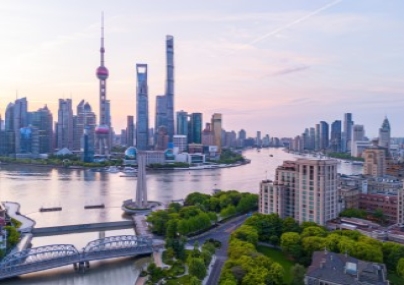
从英国“脱欧”乱局到中美贸易战,2019年对于亚洲来说是动荡的一年,该地区的一些经济体和产业受到的冲击比其他地区要大。年终岁首,几位离岸律师事务所的主要成员与我们分享了这一年的趋势和发展以及对2020年的展望。
2019年堪称是多事之秋。在英国,“脱欧”问题仍悬而未决;在亚洲,一些市场承受着中美贸易战带来的冲击;所有这些因素加在一起使市场动荡不定,削弱了投资者的信心。
“总体而言,公司法律事务方面的工作量(IPO,并购,一般咨询)整体下滑,反映出企业信心普遍受挫,”康德明律师事务所合伙人Richard Hall说。
“这些都归咎于中美贸易战的持续影响,以及香港特别行政区的不安定因素。尚没有明显迹象表明这两个方面因素会很快结束,因此我们认为在岸和离岸业务都将会继续放缓,”他补充说。
今年年中的表现就已清楚表明,2019年是IPO增长缓慢的一年。安永会计师事务所的数据显示,与2018年相比,2019年上半年,亚太地区的IPO数量(共266宗IPO)下降了12%,收益(共计223亿美元)下降了27%。
尽管与2018年相比,2019年第二季度中国内地交易所的IPO数量(33宗)增加了27%,但由于缺乏大型IPO,募集资金的金额(51亿美元)减少了38%。
2019年第三季度,上海证券交易所科创板的启动帮助抵消了香港特别行政区、日本和澳大利亚资本市场的黯淡表现。但与2018年第三季度相比,2019年第三季度亚太地区交易所的交易量(173宗IPO)和收益(237亿美元)分别下降了2%和29 %。
安永指出,由于发行人等待更有利的市场条件,导致高质量的IPO积压。其他人也指出,这样的作法给整个企业界造成了损失。
“最近的中美贸易战和香港的不安因素对我们香港业务造成了最直接的影响。贸易战影响了亚洲和美国之间的资本流动,因此在现阶段更具有破坏性。”奥杰律师事务所香港特别行政区合伙人兼亚洲投资基金团队负责人Nick Plowman说。
“由于中美贸易战的影响,香港IPO市场在过去的六个月中受到了冲击;而与此同时,纽约越来越受到寻求IPO的中国企业的青睐。”
他指出,中国经济放缓和中美贸易战所造成的不确定性也对大型并购交易造成了的影响。
“但由于中国企业希望在国际市场上筹集美元资金,美国债券发行量的激增抵消了这一影响。”Plowman说。
他补充说,开曼群岛仍然是奥杰亚洲IPO实务的默认选项。欧洲的IPO业务亦出现下滑。
“英国‘脱欧’的不确定性导致伦敦市场增长放缓,这影响了包括海峡群岛在内的许多市场;但是在过去的几年里,我们所有的主要枢纽都扩大了其地域覆盖范围,因此影响不会像以往那样严重。”他说
“离岸中心是国际金融模式不可分割的一部分,如果全球金融业出现衰退,它们将会受到影响。”
但Plowman认为,奥杰“有强大的重组、监管和争议解决律师团队,有能力对市场环境变化作出快速的反应,并且拥有良好的基础设施”,使其拥有很强的应变能力,从而开拓全球大多数市场。
面对这样的境况,所有人都要做好准备。
衡力斯律师事务所亚洲管理合伙人Ian Mann表示:“中国经济增速放缓,在东南亚地区产生了连锁反应;因此对于那些未来发展不确定的企业来说,他们需要通过变革来保持利润率。”
“但对于那些目前经营状况稳定、不急于采取变革措施的企业而言,在开展新的大型合资项目或进行收购之前,仍然会采取‘观望’政策。”
一线曙光
2019年并不是全都笼罩在悲观和沮丧中。离岸法律行业在这一年仍有很多工作要忙。
“就我们在香港的关键业务领域的工作量而言,虽然香港市场最近存在诸多不利因素,但我们的投资基金业务仍然十分繁忙。”奥杰的Plowman表示
他说,香港特别行政区仍然是亚洲基金业的中心;因此他认为开曼群岛和英属维京群岛将继续在香港特区基金业领域发挥关键作用。
“过去12个月里,几乎所有司法管辖区的争议解决工作都显著增加。我们的香港特别行政区争议解决团队不断扩大,以满足当地客户的需求;该团队与我们在开曼群岛和英属维尔京群岛的争议解决团队紧密合作,后者近年来也取得了巨大的发展。我们现在在两个司法管辖区都拥有一支由资深争议解决律师组成的优质团队。”Plowman说。
Plowman还注意到,结构性融资方面的工作有所增加,投资者希望在当前的低利率环境中获得回报。开曼群岛“孤儿”特殊目的投资机构(SPV)仍然是这些结构的首选工具,他说。
Mann表示:“我们看到了一些有趣的新的“危困企业并购”交易——本质上来说就是,公司寻求财务和运营方面的重组,以应对与定价、供应链和全球竞争格局有关的具有挑战性的市场条件。破产和重组方面的业务也有所增加。”
“目前破产和重组方面的工作增多。虽然我们还没有看到很多大型的、涉及多方的重组方案,但我们的确有大量的单一债权人诉讼案,包括由于欺诈而产生诉讼行为。随之而来的是紧急的资产追查和追回工作。”
新规则,新工作
新的经济实质立法于2019年生效,旨在明确企业需要如何证明其充足的经济实质以及报告标准,例如经济合作与发展组织(经合组织)税基侵蚀和利润转移项目(BEPS项目)的立法,这些使律所一直非常忙碌。
“根据英属维尔京群岛和开曼群岛的新立法要求,在这些司法管辖区注册成立或注册的某些实体,以及从事一项或多项相关活动的实体,必须符合当地的物质要求,即被称作‘经济实质’的要求。”Mann说。
百慕大,英属维尔京群岛和开曼群岛等司法管辖区的政府出台了新的法律和法规,要求某些范围内的实体在开展相关活动时必须满足适用的经济实质测试要求。这些法规的范围因司法管辖区而异。
“今年上半年的大部分时间都花在了教育客户上,帮助他们了解并适应所有离岸司法管辖区颁布的新经济实质法规所规定的义务或遵守这些义务。”康德明的Hall说。
他还指出,离岸市场和中岸管辖区(尤其是在基金方面)之间的差距继续缩小;有关经济实质的立法对客户及其业务运营的影响的错误信息的散播,以及由此引发的恐慌,也给律所带来了挑战,令他们今年忙得不可开交。
“我们的团队一直在帮助客户了解英属维尔京群岛和开曼群岛与经济实质立法相关的新的监管要求,并采取相应措施,这为我们的法律和行政服务带来了很多工作机会。”Plowman说。
他们通常会建议客户清点其在受影响的司法管辖区内的所有实体,并检查所涉实体的类型、税务状况和业务。
毅柏律师事务所香港特别行政区办事处公司业务合伙人Fiona Chan表示:“除了通过会议、演示、研讨会等方式为客户提供指导外,毅柏还针对客户的规模和性质给出明确、具体的建议。”
“离岸律师事务所面临的挑战来自于很多的离岸实体提出了大量的咨询要求,而同时各个主管部门也在不断出台新的法规和准则,旨在在立法的某些方面提出明确的要求和指导。”
今年,衡力斯创建了一个英属维尔京群岛经济实质分类解决方案,目的是以互动式调查问卷的方式为其亚洲客户提供指导。
为满足这些要求,律所已经做了大量的工作,Mann表示。
不过现在基本上已经尘埃落定了。
“大多数实体现在应该已经开始遵守其适用的要求了,但我们预计2020年,客户将会继续需要我们能就案例分析和报告要求等方面的问题提供咨询意见。”Chan说。
2020 Vision
With event ranging from the Brexit chaos to the U.S.-China trade war, 2019 has been a tumultuous year for the region, with certain economies and industries in Asia hit harder than others. As the year comes to an end, key figures at offshore law firms speak about the trends and developments in the year, and what lies ahead in 2020.
What a year 2019 has been. In the UK, Brexit remains unresolved. In Asia, a number of markets are facing the brunt of the U.S.-China trade war. All these have combined to shake markets and weaken investor confidence.
“Overall, a general slowdown in corporate work (IPOs, M&As, general advisory) reflected the impact of weaker business sentiment generally,” says Richard Hall, partner at Conyers Dill & Pearman.
“The slowdown was spurred by the on-going impact of the U.S.-China trade war. With no apparent end to this, we believe it will continue to drive a slow-down in work generally, both onshore and offshore,” he adds.
It was already clear by mid-2019 that it was a slower year for IPOs. According to Ernst & Young, IPO activity across the Asia-Pacific region by H1 2019 was down 12 percent by volume (266 IPOs) and 27 percent by proceeds ($22.3 billion), compared with 2018.
Even though Mainland China exchanges saw 27 percent more IPOs (33 IPOs) in Q2 2019 compared to 2018, a lack of mega IPOs saw a 38 percent decline in funds raised ($5.1 billion).
In Q3 2019, the launch of Shanghai’s STAR Market helped offset more muted activities in Hong Kong SAR, Japan and Australia. But Asia-Pacific exchanges also had a decline of 2 percent by deal volumes (173 IPOs) and 29 percent by proceeds ($23.7 billion) in Q3 2019 compared to Q3 2018.
Ernst & Young notes that there is a backlog of high-quality IPOs as issuers await more favourable market conditions. Others also note the toll it has taken on the overall corporate world.
“The recent U.S.-China trade war and unrest in Hong Kong are the two most directly impactful events for our Hong Kong business. The trade war is more damaging at this stage given its impact on the flow of capital between Asia and the U.S.,” says Nick Plowman, Ogier partner in Hong Kong SAR and head of the firm’s investment funds team in Asia.
“Hong Kong IPO’s have taken a hit over the last six months off the back of the trade war with the U.S. and we have seen an uptick in the popularity of New York as a listing venue for Chinese companies looking to IPO.”
He notes that big-ticket M&A has been impacted by the China slowdown and the uncertainty created by the U.S.-China trade war.
“But this has been offset by a surge in U.S. bond offerings as Chinese enter-prises look to raise U.S. dollars in the international market,” says Plowman.
He adds that the Cayman continues to be the default choice for listings for Ogier’s Asian IPO practice. In Europe, there has also been a slowdown.
“Brexit uncertainty is causing a slow-down in the London market, which affects a lot of markets, including the Channel Islands, but all of our major hubs have broadened their geographical coverage over the last few years, so the impact is not what it once would have been,” he says.
“Offshore centres are an integral part of the international finance model and if there is a recession, they will be affected.”
But Plowman credits his firm’s “deep pool of restructuring, regulatory and disputes lawyers, the ability to react quickly to changes in market conditions, strong infrastructure” for their resilience and ability to tap into most markets in the world.
And everyone needs to gear up.
“The slowing PRC economy, with knock-on effects for South-East Asia, has led to the need for corporate change for companies facing an uncertain future to maintain profit margins,” says Ian Mann, Asia managing partner at Harneys.
“For those companies that remained stable and did not face this imperative, there has been a ‘wait and see’ policy, before entering into large new joint ventures or acquisitions.”
SILVER LININGS
But it’s not all doom and gloom. The offshore legal industry still had plenty to keep itself busy with in 2019.
“In terms of workflows into our key service lines in Hong Kong, our investment funds practice remains busy despite the recent headwinds in the Hong Kong market generally,” says Ogier’s Plowman.
He says that Hong Kong SAR remains the centre of the Asian funds industry and his view is that the Cayman and British Virgin Islands (BVI) will continue to play a key role in Hong Kong SAR in this context.
“We’ve also seen a noticeable spike in dispute resolution work in the last 12 months across almost all jurisdictions. Our Hong Kong SAR disputes team continues to expand to keep up with local client demand. The team works closely with our DR teams in Cayman and BVI who have also been expanding very significantly in recent years and we now have a quality bench of senior disputes lawyers in both jurisdictions,” says Plowman.
Plowman has also noticed an uptick in structured finance work with investors looking for a return in the prevailing low-interest-rate environment. He says that Cayman orphan special purpose vehicles remain the vehicle of choice for these structures.
“We have seen interesting new ‘distressed M&A’ deals - essentially corporations seeking to restructure financially and operationally to meet challenging market conditions relating to pricing, the supply chain and the global competitive landscape,” says Mann.
“There has also been an increase in insolvency and restructuring work. Although we did not see many of the very large multi-party restructuring work-outs, we certainly had a good flow of single creditor actions, including those arising as a result of unfortunate fraud. Fraud then leads to urgent asset-tracing and recovery work.”
NEW RULES, NEW WORK
New economic substance legislation that came into force in 2019 aims to provide clarity around how businesses need to demonstrate adequate economic substance and reporting standards, such as the one by the Organisation for Economic Co-operation and Development’s (OECD) Base Erosion and Profit Shifting Project (BEPS Project). And it has kept the firms working hard.
“New legislation in the BVI and the Cayman Islands required certain entities that are incorporated or registered in those jurisdictions, and which conduct one or more of a setlist of relevant activities, to comply with local substance requirements known as ‘economic substance’,” says Mann.
The governments of jurisdictions such as Bermuda, the BVI, and the Cayman Islands introduced new laws and regulations to impose requirements on certain in-scope entities to meet applicable economic substance tests if they carry on relevant activity. The scope of these regulations varies from jurisdiction to jurisdiction.
“Much of the early part of the year was spent on educating clients and getting them comfortable with their obligations under, or compliance with, the new economic substance legislation enacted by all offshore jurisdictions,” says Conyers’ Hall.
He also names the continued narrowing of the distinction between offshore and mid-shore, especially for funds; the scaremongering and spread of misinformation regarding the impact of economic substance legislation on clients and their business operations as challenges that have kept them busy this year as well.
“The team have been helping our clients with new regulatory changes relating to economic substance laws in BVI and Cayman and this is throwing up a lot of opportunities for our legal and administration offerings,” says Plowman.
Clients have been advised to take an inventory of all their entities in the affected jurisdictions and to examine the type of entities, tax position and operation involved.
“Apart from guiding clients in meetings, conferences, presentations, seminars alike, Appleby have been engaged to offer specific advice to clients of all sizes and natures given their particular circumstances,” says Fiona Chan, corporate partner at Appleby’s Hong Kong SAR office.
“The challenge to offshore law firms comes from the sheer number of enquiries based on the vast number of offshore entities, as well as the constantly evolving regulations and codes issued by various authorities in order to provide clarity and guidance on certain aspects of the legislation.”
To contact the editorial team, please email ALBEditor@thomsonreuters.com.



